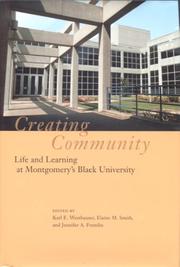| Listing 1 - 10 of 22 | << page >> |
Sort by
|
Book
Year: 1993 Publisher: Cambridge, Mass. National Bureau of Economic Research
Abstract | Keywords | Export | Availability | Bookmark
 Loading...
Loading...Choose an application
- Reference Manager
- EndNote
- RefWorks (Direct export to RefWorks)
This paper reexamines the widely-held wisdom that the currency exposure of international investments should be entirely hedged. It finds that the previously documented ability of hedges to reduce portfolio return variance holds at short horizons, but not at long horizons. At horizons of several years, complete hedging not only does not lower return variance, it actually increases the return variance of many portfolios. Hedge ratios chosen to minimize long-run return variance are not only low, they also have no perceptible impact on return variance. The paper reports and explores these results, their apparent causes, and investigates their implications for hedging practice.
Foreign exchange --- Universities and colleges, Black. --- Hedging (Finance) --- Econometric models.
Publisher: [Washington, D.C.] : National Endowment for the Humanities
Abstract | Keywords | Export | Availability | Bookmark
 Loading...
Loading...Choose an application
- Reference Manager
- EndNote
- RefWorks (Direct export to RefWorks)
Universities and colleges, Black --- Indian universities and colleges --- Humanities --- Research grants --- Research grants --- Research grants --- National Endowment for the Humanities --- Research grants.
Book
ISBN: 178714903X 1786355213 1786355221 9781786355218 9781786355225 Year: 2018 Publisher: Bingley, UK
Abstract | Keywords | Export | Availability | Bookmark
 Loading...
Loading...Choose an application
- Reference Manager
- EndNote
- RefWorks (Direct export to RefWorks)
This book examines colleges and universities across the diaspora with majority African, African-American, and other Black designated student enrollments. The nomenclature of this cohort connotes an assumption of racial exclusivity and homogenous monolithism. Research confirms that these campuses possess a flourishing landscape with racial, economic, and gender diversity while sharing a Black identity created through global racialization. Globally, Black colleges and universities create academic and social environments where different races, sexes, cultures, languages, nationalities, and citizenship status coexist, enabling academic achievement, civic engagement, and colonial resistance. This volume highlights racial hegemony in multi-national student experiences and achievement; examines the social and career implications of attendance on lifelong success; explores the impact of global Black marginalization and racist ideology on Black college communities; and explores the role gender plays in outcomes and attainment. This book engages the diversity of black colleges and universities and explains their critical role in promoting academic excellence in higher education.
College students, Black. --- Black college students --- Black university students --- Students, Black --- Universities and colleges, Black. --- Race relations --- Education, Higher --- Study and teaching (Higher) --- Social aspects. --- Black colleges --- Black universities and colleges --- Colleges, Black --- Negro universities and colleges --- Black people --- Universities and colleges --- Integration, Racial --- Race problems --- Race question --- Relations, Race --- Ethnology --- Social problems --- Sociology --- Ethnic relations --- Minorities --- Racism --- Education
Book
ISBN: 1839822074 183982204X 9781839822049 1839822066 9781839822063 9781839822070 Year: 2020 Publisher: United Kingdom
Abstract | Keywords | Export | Availability | Bookmark
 Loading...
Loading...Choose an application
- Reference Manager
- EndNote
- RefWorks (Direct export to RefWorks)
African American universities and colleges --- Educational leadership --- Administration. --- African American colleges --- Afro-American universities and colleges --- Colleges, African American --- HBCUs (Historically black colleges and universities) --- Historically black colleges and universities --- Negro universities and colleges --- Universities and colleges, African American --- Universities and colleges, Black --- Universities and colleges --- PBIs (Predominantly Black institutions) --- Predominantly Black institutions --- Historically Black colleges and universities --- HBCUs (Historically Black colleges and universities)
Book
ISBN: 0585173524 9780585173528 0890962235 9780890962237 Year: 1985 Volume: no. 3 Publisher: College Station Texas A & M University Press
Abstract | Keywords | Export | Availability | Bookmark
 Loading...
Loading...Choose an application
- Reference Manager
- EndNote
- RefWorks (Direct export to RefWorks)
African American universities and colleges --- Education, Special Topics --- Education --- Social Sciences --- African American colleges --- Afro-American universities and colleges --- Colleges, African American --- HBCUs (Historically black colleges and universities) --- Historically black colleges and universities --- Negro universities and colleges --- Universities and colleges, African American --- Universities and colleges, Black --- Universities and colleges --- History. --- History --- PBIs (Predominantly Black institutions) --- Predominantly Black institutions

ISBN: 0817380426 9780817380427 0817314636 9780817314637 9780817354992 0817354999 Year: 2005 Publisher: Tuscaloosa, Ala. University of Alabama Press
Abstract | Keywords | Export | Availability | Bookmark
 Loading...
Loading...Choose an application
- Reference Manager
- EndNote
- RefWorks (Direct export to RefWorks)
A community of inquiry and pride in central Alabama. Creating Community explores how faculty members at Alabama State University, a historically black university in Montgomery, have been inspired by the legacy of African American culture and the civil rights movement and how they seek to interpret and extend that legacy through teaching, scholarship, and service. Authors describe a wide range of experiences from the era of segregation to the present day. T
African American universities and colleges --- African American colleges --- Afro-American universities and colleges --- Colleges, African American --- HBCUs (Historically black colleges and universities) --- Historically black colleges and universities --- Negro universities and colleges --- Universities and colleges, African American --- Universities and colleges, Black --- Universities and colleges --- History. --- Alabama State University --- Alabama State College --- Alabama. --- Faculty --- PBIs (Predominantly Black institutions) --- Predominantly Black institutions

ISBN: 1579229255 1429484586 9781429484589 1579221440 9781579221447 1579221459 9781579221454 1003445144 1000972178 9781579229252 Year: 2006 Publisher: Sterling, Va. Stylus Pub.
Abstract | Keywords | Export | Availability | Bookmark
 Loading...
Loading...Choose an application
- Reference Manager
- EndNote
- RefWorks (Direct export to RefWorks)
To their disadvantage, few Americans--and few in higher education--know much about the successes of historically Black colleges and universities. How is it that historically Black colleges graduate so many low-income and academically poorly prepared students? How do they manage to do so well with students "as they are", even when adopting open admissions policies?In this volume, contributors from a wide spectrum of Black colleges offer insights and examples of the policies and practice--such as retention strategies, co-curricular activities and approaches to mentoring--which underpin their disproportionate success with populations that too often fail in other institutions.This book also challenges the myth that these colleges are segregated institutions and that teachers of color are essential to minority student success. HBCUs employ large numbers of non-Black faculty who demonstrate the ability to facilitate the success of African American students.This book offers valuable lessons for faculty, faculty developers, student affairs personnel and administrators in the wider higher education community-lessons that are all the more urgent as they face a growing racially diverse student population.While, for HBCUs themselves, this book reaffirms the importance of their mission today, it also raises issues they must address to maintain the edge they have achieved.Contributors: Pamela G. Arrington; Delbert Baker; Susan Baker; Stanley F. Battle; T. J. Bryan; Terrolyn P. Carter; Ronnie L. Collins; Samuel DuBois Cook; Elaine Johnson Copeland; Marcela A. Copes; Quiester Craig; Lawrence A. Davis, Jr.; Frances C. Gordon; Frank W. Hale, Jr.; B. Denise Hawkins; Karen A. Holbrook; James E. Hunter; Frank L. Matthews; Henry Ponder; Anne S. Pruitt-Logan; Talbert O. Shaw; Orlando L. Taylor ; W. Eric Thomas; M. Rick Turner; Mervyn A. Warren; Charles V. Willie; James G. Wingate.
African American universities and colleges. --- African Americans --- Education, Higher. --- College students --- Higher education --- Postsecondary education --- Universities and colleges --- African American colleges --- Afro-American universities and colleges --- Colleges, African American --- Negro universities and colleges --- PBIs (Predominantly Black institutions) --- Predominantly Black institutions --- Universities and colleges, African American --- Universities and colleges, Black --- Education (Higher) --- Education --- African American Universities And Colleges --- Social Science
Book
ISBN: 1681239930 9781681239934 1681239914 9781681239910 9781681239910 9781681239927 1681239922 Year: 2018 Publisher: Charlotte, NC
Abstract | Keywords | Export | Availability | Bookmark
 Loading...
Loading...Choose an application
- Reference Manager
- EndNote
- RefWorks (Direct export to RefWorks)
African American universities and colleges --- African American colleges --- Afro-American universities and colleges --- Colleges, African American --- HBCUs (Historically black colleges and universities) --- Historically black colleges and universities --- Negro universities and colleges --- Universities and colleges, African American --- Universities and colleges, Black --- Universities and colleges --- Finance. --- Planning. --- PBIs (Predominantly Black institutions) --- Predominantly Black institutions --- Historically Black colleges and universities --- HBCUs (Historically Black colleges and universities)
Book
ISBN: 1641132795 9781641132794 9781641132770 1641132779 9781641132787 1641132787 Year: 2018 Publisher: Charlotte, NC
Abstract | Keywords | Export | Availability | Bookmark
 Loading...
Loading...Choose an application
- Reference Manager
- EndNote
- RefWorks (Direct export to RefWorks)
"The primary thrust of the proposed volume is to provide information for higher education minority serving institutions (MSIs) and other institutions and individuals interested in providing and/or improving mentoring programs and services to a variety of target groups. The editors are interested in how mentorship can produce beneficial outcomes for the mentor that may be similar to or different from outcomes in other educational contexts. Thus, the purpose of this volume is to showcase, through case studies and other forms of empirical research, how successful mentoring programs and relationships at MSIs have been designed and implemented. Additionally, we will examine the various definitions and slight variations of the meaning of the construct of mentoring within the MSI context. It is our intent to share aspects of mentoring programs and relationships as well as their outcomes that have heretofore been underrepresented and underreported in the research literature" --
Minority college students --- Mentoring in education --- African American universities and colleges. --- African American colleges --- Afro-American universities and colleges --- Colleges, African American --- HBCUs (Historically black colleges and universities) --- Historically black colleges and universities --- Negro universities and colleges --- Universities and colleges, African American --- Universities and colleges, Black --- Universities and colleges --- College students --- Minority students --- Services for --- PBIs (Predominantly Black institutions) --- Predominantly Black institutions
Book
ISBN: 9781438456928 1438456921 9781438456911 1438456913 Year: 2015 Publisher: Albany, NY
Abstract | Keywords | Export | Availability | Bookmark
 Loading...
Loading...Choose an application
- Reference Manager
- EndNote
- RefWorks (Direct export to RefWorks)
A quarter of black Americans earn college degrees from black colleges, yet questions about the necessity of black colleges abound. In the Face of Inequality dissects the ways in which race and racism combined to shape the experiences of America's black colleges in the mid-twentieth century. In a novel approach to this topic, Melissa E. Wooten combines historical data with a sociological approach. Drawing on extensive quantitative and qualitative historical data, Wooten argues that for much of America's history, educational and social policy was explicitly designed to limit black colleges' organizational development. As an alternative to questioning the modern day relevance of these schools, Wooten asks readers to consider how race and racism precludes black colleges from acquiring the resources and respect worthy of them.
African American universities and colleges. --- African Americans --- African American colleges --- Afro-American universities and colleges --- Colleges, African American --- HBCUs (Historically black colleges and universities) --- Historically black colleges and universities --- Negro universities and colleges --- Universities and colleges, African American --- Universities and colleges, Black --- Universities and colleges --- Education (Higher) --- PBIs (Predominantly Black institutions) --- Predominantly Black institutions
| Listing 1 - 10 of 22 | << page >> |
Sort by
|

 Search
Search Feedback
Feedback About UniCat
About UniCat  Help
Help News
News